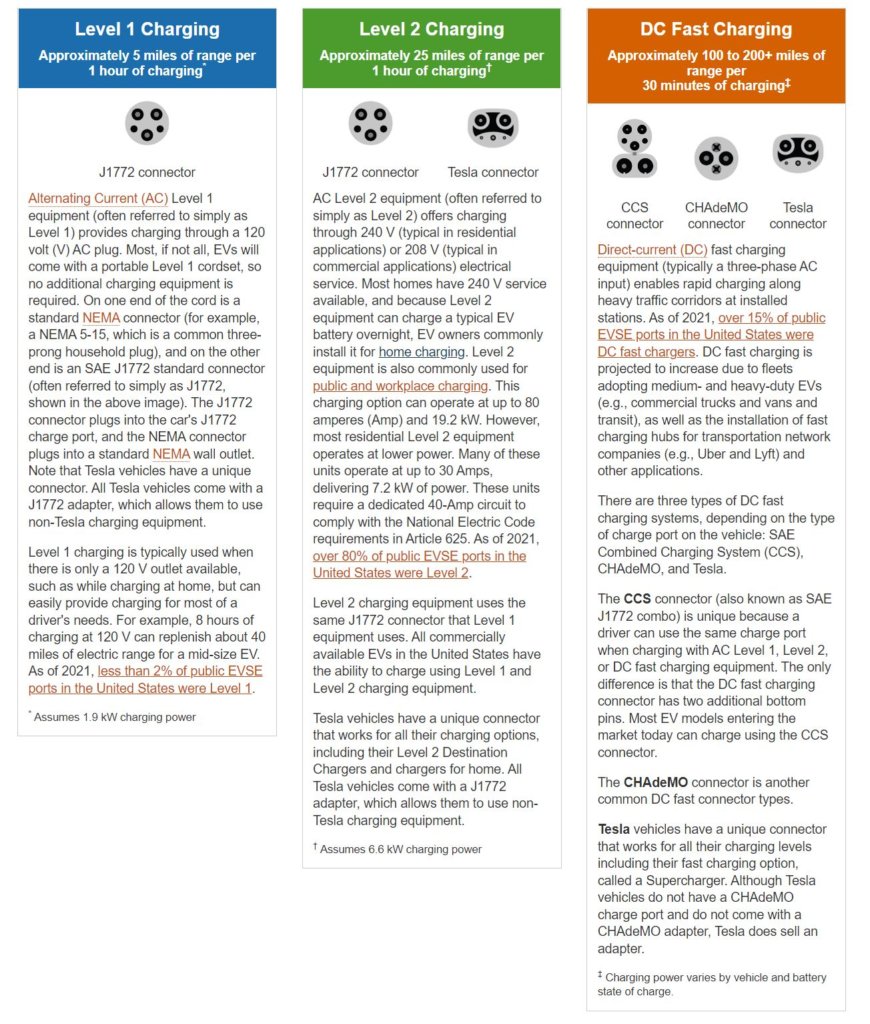I worked the Kentucky’s Touchstone Energy booth at the Kentucky State Fair today. The main feature of the booth is an all-electric Chevy Bolt and it was of interest to many passers-by.
I was able to share my new experiences with those who stopped, many of whom had the same basic questions:
- What is the driving range? That depends heavily on the car itself (make, model, year) and weather conditions. This article from Car and Driver lists the newest models being sold and their estimated EPA MPGe (the EV equivalent of miles per gallon). The EVs listed in this article range from 100 miles to 520 miles in the highest-end 2022 Tesla on the market. Nolin’s Mach-e model is advertised as having 305 miles of range (the highest range I have seen after a full charge is just under 300).
- How long does it take to charge? The level of charger is the main variable here. Below is a diagram from the Department of Energy with specs. The Nolin Mach-e on the level 2 charger is averaging 25-30 miles per charging hour.
- How would you use it for traveling long distances? With a lot of planning. Tools like Plugshare.com make that possible – though their trip planning capabilities and charging station location map are less robust than I had hoped. (I’ll take a closer look at these apps in a future post). This question generated some good conversations about investment in the charging infrastructure. At this point in history, it seems less practical to have an EV if you travel long distances regularly than if you plan to use it around town and can charge at home regularly.
- How does it drive? This also depends on the vehicle itself, of course, but the two EVs I have driven handle well (in my non-car enthusiast opinion) and have responsive acceleration. Honestly, I forget I’m driving an EV a few minutes in and it just feels like a normal car with good pick up.
- How much does it cost to charge? I will explore this more in a future post, but the Department of Energy gives a general overview:
“The fuel efficiency of an EV may be measured in kilowatt-hours (kWh) per 100 miles. To calculate the cost per mile of an EV, the cost of electricity (in dollars per kWh) and the efficiency of the vehicle (how much electricity is used to travel 100 miles) must be known. If electricity costs 10.7 cents per kWh and the vehicle consumes 27 kWh to travel 100 miles, the cost per mile is about $0.03.
If electricity costs 10.7 cents per kilowatt-hour, charging an EV with a 200-mile range (assuming a fully depleted 54 kWh battery) will cost about $6 to reach a full charge. To compare the fueling costs of individual models of conventional and electric vehicles, see the Vehicle Cost Calculator.
EV CHARGER INFORMATION FROM THE DEPARTMENT OF ENERGY
This can also be viewed HERE

